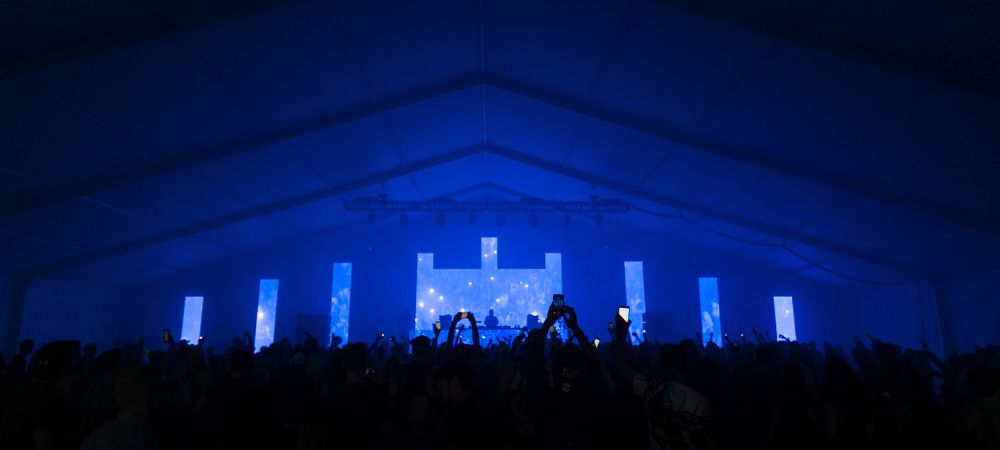

Back in the 1990s, Blockbuster was a huge success as a video rental store. additional information available click it. It was like, the go-to place for people to rent movies and games. They had like, tons of locations all over the country, and everyone knew about them.
One of the reasons why Blockbuster was so successful was because they had a wide selection of movies and games to choose from. You could find pretty much anything you wanted there. Plus, their stores were like, super convenient to visit - you could just pop in and browse around for hours.
Another thing that made Blockbuster stand out was their late fees policy. People didn't have to worry about returning their rentals on time, which was like, a huge relief for many customers. It made renting movies and games feel less stressful and more enjoyable.
However, as time went on, things started to change for Blockbuster. With the rise of online streaming services like Netflix and Redbox, fewer people were visiting brick-and-mortar stores like Blockbuster. The convenience of being able to watch movies from home without having to leave the house became more appealing to consumers.
In addition, the cost of running physical stores became too high for Blockbuster to sustain. Obtain the news go to it. They struggled financially and eventually filed for bankruptcy in 2010. It's sad to see such an iconic brand fade away like that, but it's just the reality of how technology has changed our way of consuming media.
Overall, despite its past success in the 1990s as a video rental store, Blockbuster's decline in the face of competition from online streaming services marked the end of an era for brick-and-mortar stores everywhere.
Well, let me tell you how the shift to digital streaming services really messed up Blockbuster. Back in the day, everyone used to go to Blockbuster to rent movies and games. But then, all of a sudden, these digital streaming services started popping up everywhere. And people were like, "Why would I go all the way to Blockbuster when I can just watch a movie from my couch?" So, slowly but surely, Blockbuster started losing customers.
I mean, who wants to deal with late fees and returning physical DVDs when you can just stream something instantly? It was so much more convenient! And let's be real, Blockbuster didn't really have much else going for it besides the whole renting movies thing. They didn't adapt quickly enough to the changing times.
So yeah, it's no wonder that Blockbuster went downhill fast. The rise of digital streaming services definitely played a huge role in their decline. It's kind of sad when you think about it - Blockbuster used to be such a big part of our lives. But hey, that's just how things go sometimes.
Man, Blockbuster was such a big deal back in the day!. It was like the go-to spot for renting movies and games.

Posted by on 2024-05-04
So, like, the future outlook for brick-and-mortar video rental stores ain't lookin' too bright in this era of streaming services.. With all them fancy platforms like Netflix and Hulu takin' over, it's gettin' harder and harder for traditional stores to keep up.
I mean, who wants to go out to a store and rent a movie when you can just stream it from the comfort of your own home?

Posted by on 2024-05-04
The closure of Blockbuster locations has had a significant impact on local communities and has changed the way people consume media.. Back in the day, going to Blockbuster was an event - browsing aisles of DVDs, picking out movies for the weekend, maybe even grabbing some popcorn or candy at the checkout.

Posted by on 2024-05-04
Brick-and-mortar stores facing big challenges in adapting to changing customer preferences. People are shopping online more and more, which means less foot traffic in physical stores.
Stores gotta compete with online retailers like Amazon who offer convenience and lower prices. It's tough for brick-and-mortars to keep up with that kinda competition.
Customers want fast and easy shopping experiences these days. They don't wanna deal with crowds or long lines at the checkout. That's why they're turning to online shopping instead.
And let's not forget about the whole pandemic situation - it's made things even harder for brick-and-mortar stores. People are scared to go out in public and prefer to shop from the safety of their homes.
It ain't gonna be easy for traditional stores to survive in this new retail landscape. They gotta find ways to adapt and meet the changing needs of customers if they wanna stay in business.

Blockbuster, a once popular brick-and-mortar store for renting movies, failed to innovate and keep up with technology advancements, leading to its decline. The company did not adapt to the rise of online streaming services like Netflix and Hulu, causing customers to flock to these digital platforms instead. Blockbuster's refusal to embrace change resulted in a loss of relevance in the ever-evolving entertainment industry.
Instead of investing in new technologies and improving their customer experience, Blockbuster remained stuck in the past. The lack of innovation ultimately led to the closure of many stores and the downfall of the brand as a whole. It is clear that without embracing innovation, even established businesses can quickly become obsolete.
In conclusion, Blockbuster's failure to innovate and keep up with technology advancements played a significant role in its decline. Neglecting to adapt to changing consumer preferences ultimately led to the downfall of this once iconic brick-and-mortar store. It serves as a cautionary tale for businesses that fail to evolve with the times.
The closure of Blockbuster stores has had a significant impact on the retail industry. This ain't just some small thing, ya know? It's like a big deal! With more and more people turning to online streaming services for their entertainment needs, brick-and-mortar stores like Blockbuster have been struggling to stay afloat. The examination of this closure can give us some insight into the challenges facing traditional retailers in today's digital age.
One implication of this closure is the shift towards online shopping. People are now able to access a wide range of products and services from the comfort of their own homes. This means that physical stores may struggle to compete with the convenience and variety offered by online retailers. Ain't nobody got time to go out to buy stuff when you can just order it online, right?
Another implication is the rise of subscription-based services. With platforms like Netflix and Amazon Prime offering unlimited access to movies and TV shows for a monthly fee, consumers are less inclined to visit physical stores to rent or purchase DVDs. Why bother going out when you can just binge-watch your favorite shows from home?
Overall, the closure of Blockbuster stores serves as a warning sign for brick-and-mortar retailers. If they don't adapt to the changing preferences of consumers, they risk falling behind in an increasingly digital world. It's important for traditional retailers to find ways to differentiate themselves and provide value that online retailers can't match. Otherwise, they might end up closing their doors just like Blockbuster did. Let's hope that doesn't happen too often!
When it comes to comparing traditional retail models with e-commerce platforms in terms of convenience and customer experience, there is no denying that online shopping has become increasingly popular in recent years. With the rise of technology and the internet, many consumers are turning to e-commerce platforms for their shopping needs.
One of the main advantages of e-commerce platforms is the convenience they offer. Instead of having to physically go to a store, customers can simply browse products online from the comfort of their own home. This saves time and effort, making the shopping experience much more convenient.
Additionally, e-commerce platforms often provide a wider selection of products compared to traditional brick-and-mortar stores. Customers can easily compare prices and read reviews before making a purchase, which helps them make informed decisions.
Despite these benefits, traditional retail models still have some advantages over e-commerce platforms. For example, some customers prefer being able to see and touch products before buying them. In-store shopping also allows for instant gratification, as customers can take their purchases home immediately.
In conclusion, while e-commerce platforms offer convenience and a wide selection of products, traditional retail models still hold value for some customers who prefer the in-store shopping experience. Ultimately, both options have their own strengths and weaknesses when it comes to providing convenience and customer satisfaction.